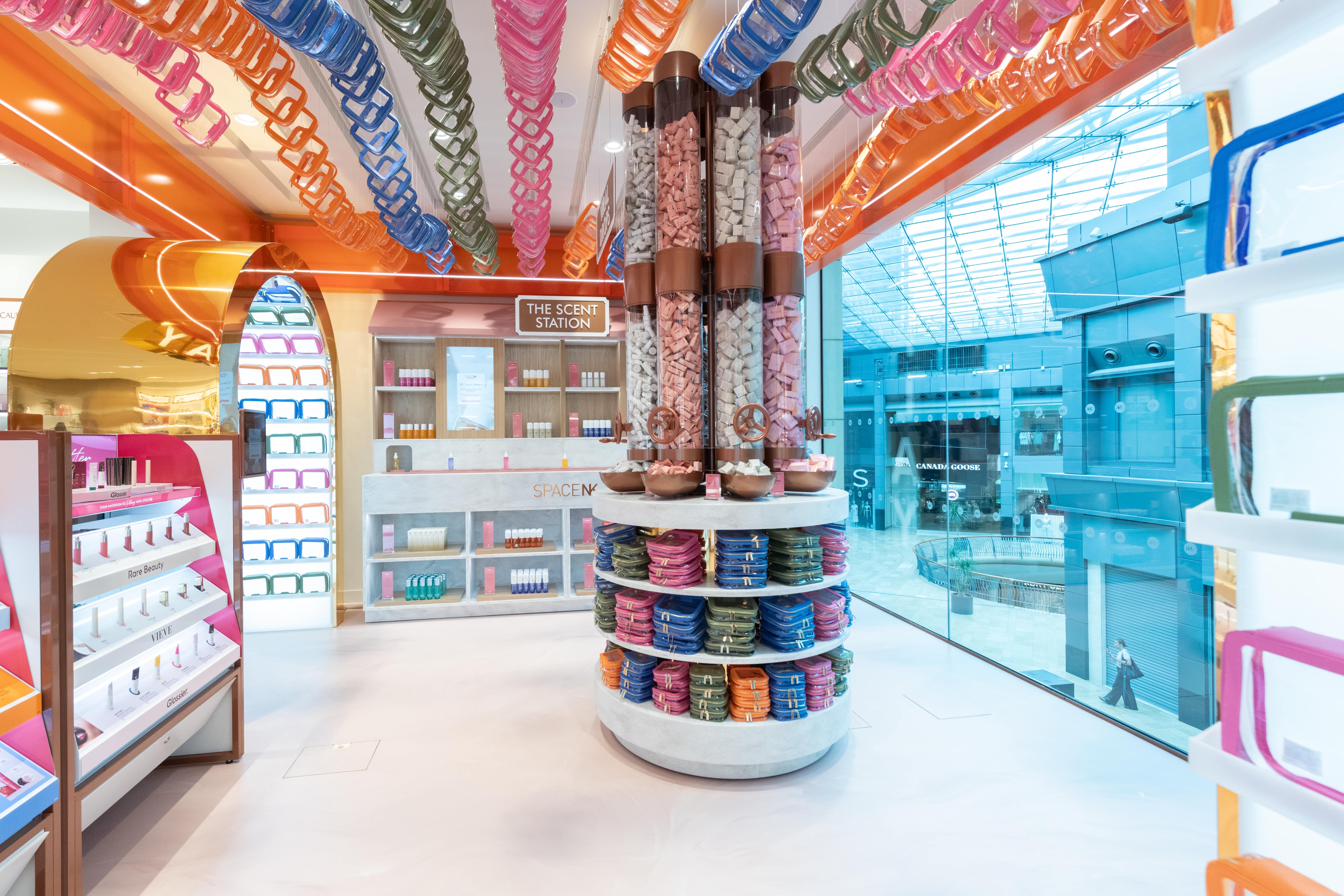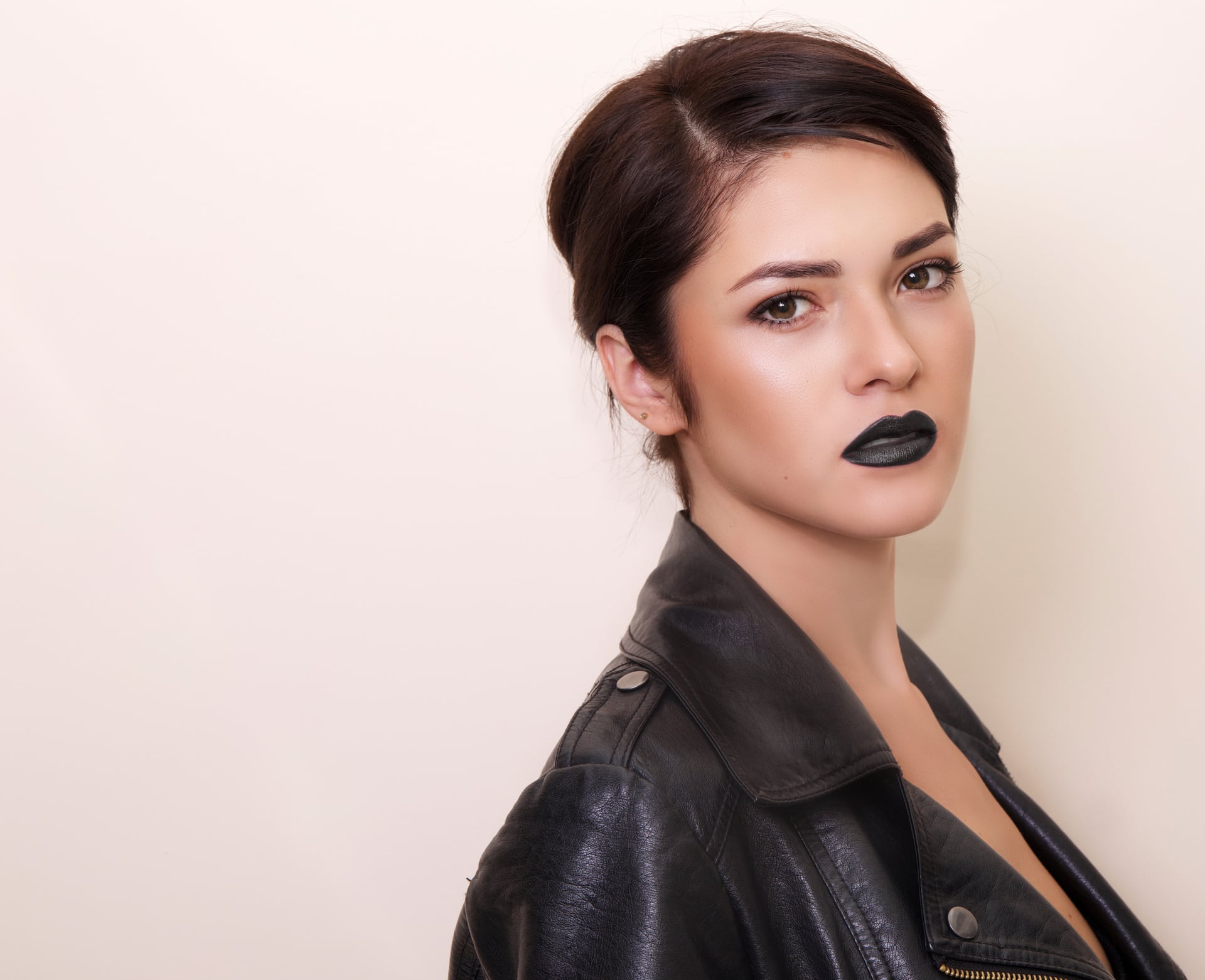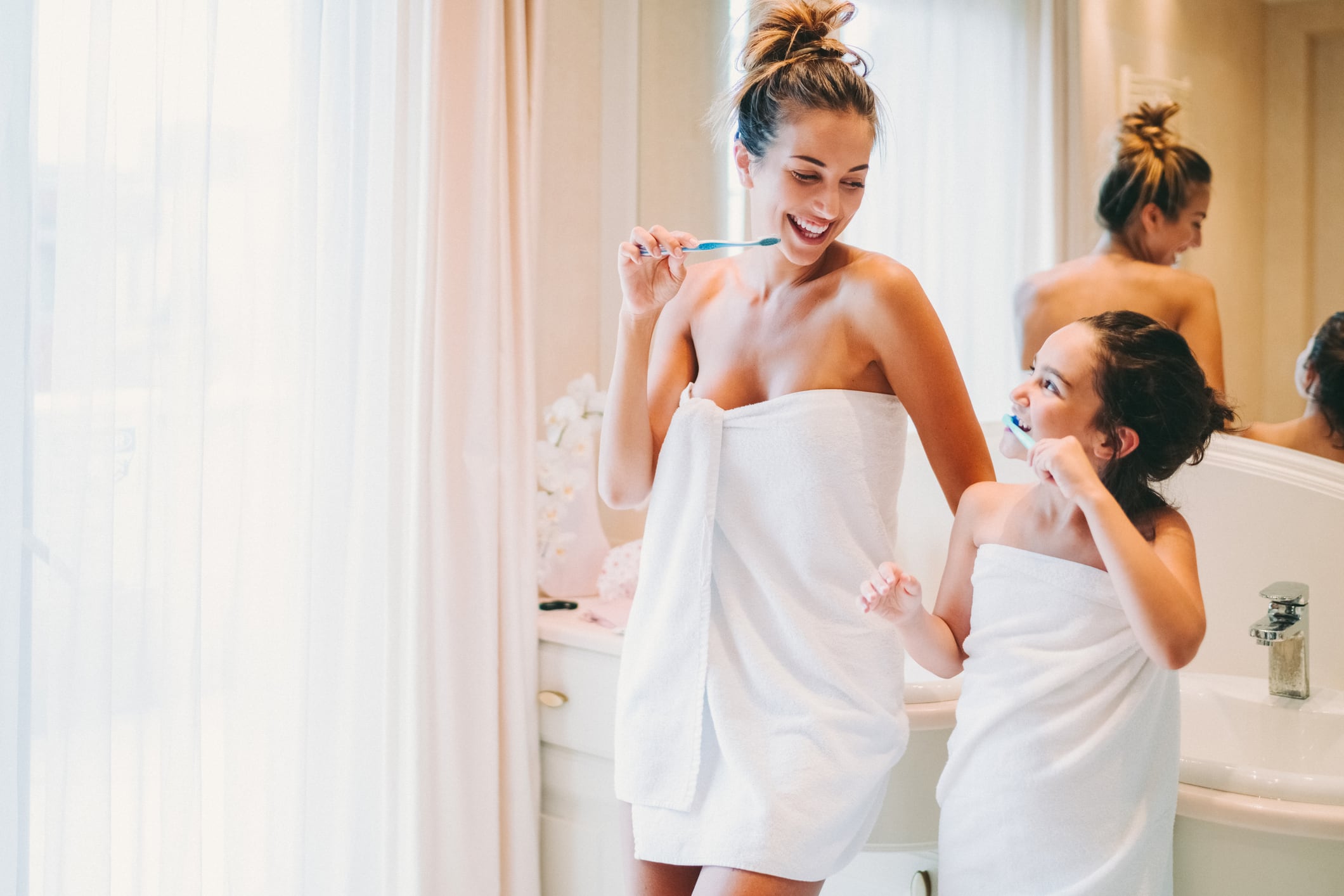Key takeaways
- Physical beauty retail is evolving into immersive, experiential destinations.
- Flagship stores by Space NK and Charlotte Tilbury showcase the future of in-store beauty.
- Experts say tactile experiences, expert consultations and community-building are key differentiators from ecommerce.
- Retailers must design spaces that prioritise education, play and personalisation.
In August 2025, UK cosmetics retailer Space NK opened a 4,356 sq ft store at the Birmingham Bullring shopping centre, complete with a dedicated consultation area for makeup and skincare, interactive ‘play tables’ for customers to test products, and its widest selection of premium beauty brands.
According to CEO Andy Lightfoot, the new store is “undoubtedly one of the most significant openings to date.” But it wasn’t its only beauty megastore. Earlier in the summer, the luxury beauty retailer, which was acquired by Ulta Beauty in July, also opened another flagship in central London.
These two openings followed the unveiling of a giant ‘beauty wonderland’ in Covent Garden earlier in the year by Puig-owned makeup brand Charlotte Tilbury.
The 4,300 sq ft “playground to beauty and skincare lovers” revealed the brand’s first Skin Spa with a four-strong menu of facial treatments, and an immersive Pillow Talk Bar, Pillow Talk Parlour and Beauty Boudoir that will host spaces for group masterclasses, influencer and press events.
Tilbury herself dubbed it “beauty store of the future.”
“It has education, futuristic tech, Instagrammable moments, themed worlds and bookable areas,” she said. “Everyone will walk out of this beauty universe feeling like the most beautiful and confident version of themselves.”
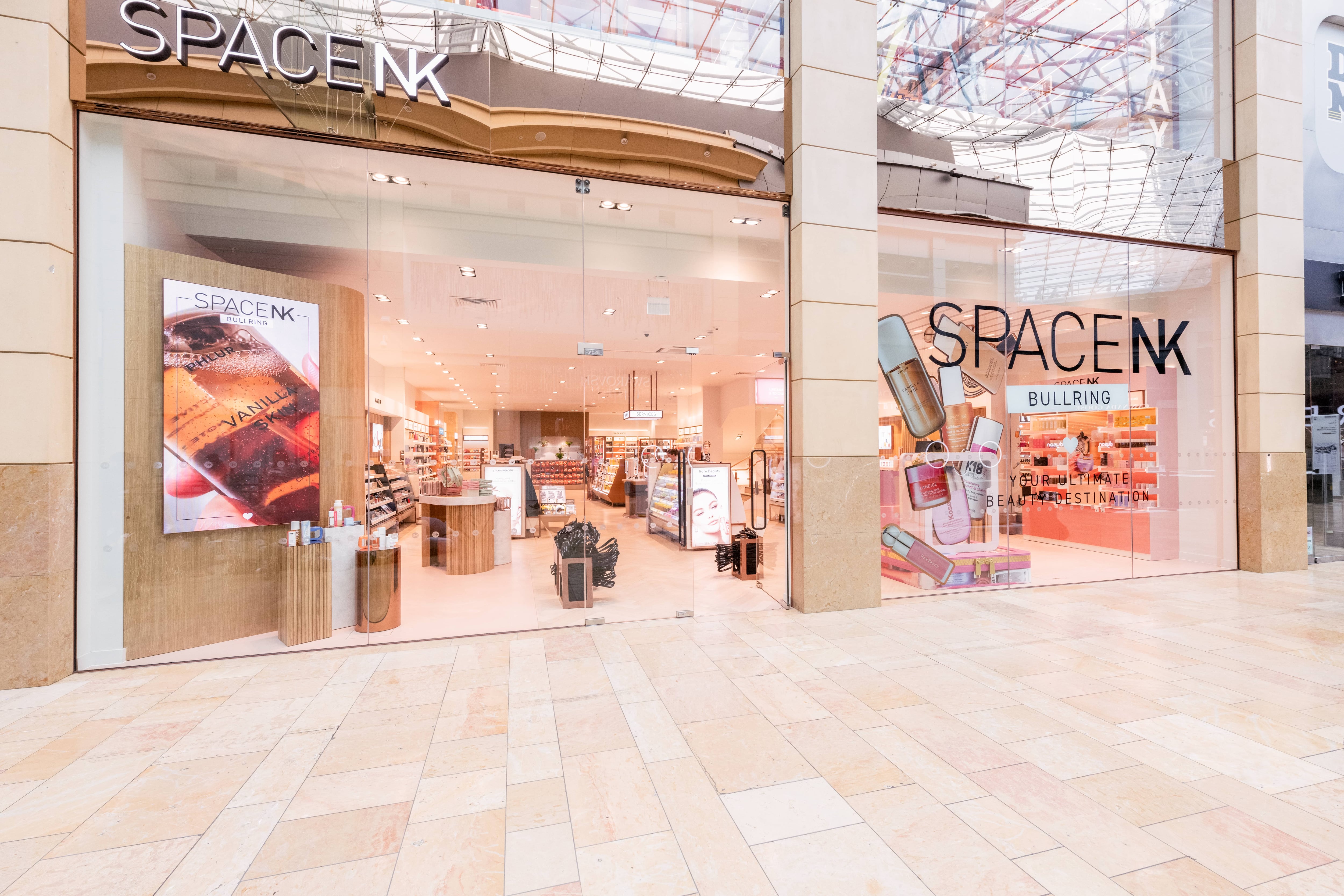
Immersive beauty retail is gaining momentum
According to senior strategist at Seen Studios, Gursharan Panesar, other beauty brands should sit up and take notice of those transforming retail spaces into experiential destinations focused on discovery and play.
“The beauty sector understands better than others that while digital excels at convenience, there’s still no substitute for trialling a fragrance or feeling a texture in person, which is why physical stores must evolve into something far more engaging than traditional retail,” said Panesar.
“What we’re witnessing across the beauty landscape is retailers recognising that queues form not just for in-store exclusives, but also for experiences,” she continued. “People will wait hours to access spaces that offer genuine discovery, whether that’s through sampling stations, expert consultations, or simply the joy of exploring new products in a tactile environment. This tells us everything about where consumer priorities lie.”
Why physical stores still matter in the digital age
Beauty retail has universal appeal that transcends age, experience level and spending power because it taps into a very human desire to play, experiment and transform.
“Smart retailers are designing spaces that feel welcoming to complete beginners while still offering depth for seasoned aficionados,” said Panesar, highlighting that physical stores offer services that ecommerce cannot replicate – like expert intuition, personalised recommendations and human connection.
“When customers can move seamlessly between skincare consultations and fragrance profiling, you’re creating a journey rather than just a transaction,” she continued. “For multi-brand retailers especially, the physical store becomes the product. The way a consumer moves through the space is what they’re really selling; the curation, the experience, the expertise all matter as much as the brands they stock.”
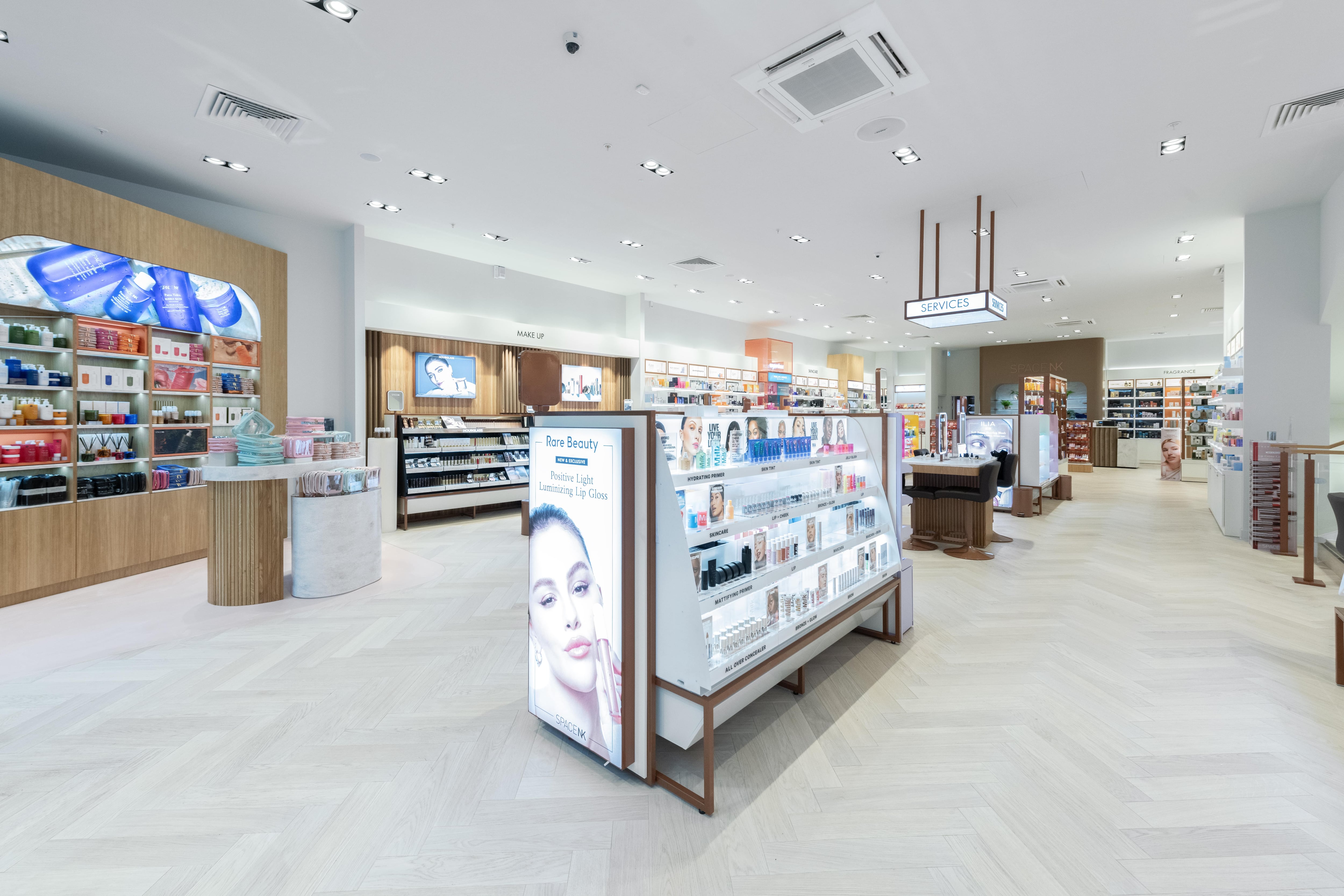
Designing beauty spaces that build community
Shared beauty discovery, getting recommendations, product trial and collective excitement around new launches create a very human atmosphere that’s both personal and communal – especially at a time when that sense of community is declining in other areas of life.
“The best beauty spaces capture that collective feeling of getting ready with friends: those spontaneous moments of discovery when someone shares their secret technique or you fall in love with their lipstick; all while ensuring everyone feels included in the experience,” said Panesar.
“Moving forward, we’ll see retailers continue to experiment with dedicated experience zones, expert-led services and immersive environments that prioritise education and exploration over pure sales volume,” she concluded. “The task for beauty retailers is designing an in-store experience worth getting in a queue for.”


